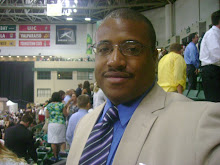As you read Prisoner on the Hell Planet to determine Artie’s relationship to his Jewish heritage as well as the book Maus, you get a glimpse of his viewpoint as it relates to his heritage. Without reading the words in Prisoner on the Hell Planet but by simply viewing the visuals you can see that Artie views his Jewish heritage from the standpoint as if he himself was a prisoner of the German death camps during the World War II years. Throughout the Prisoner on the Hell Planet you see Artie depicted in the prison garb of the Jews as if to say that by being a Jew he is forever a prisoner by simply being a Jew. Other visuals that show Artie as a prisoner is when the family friend informs him that his mom is sick and this person definitely represents a Polish person because on pages 138-53 of Maus Polish people are depicted as pigs. According the Maus, the Polish people despised the Jews just as much as the Germans did, and they conspired with the Germans to capture Jews. Another visual found in Prisoner on the Hell Planet is the doctor himself who looks similar to Adolf Hitler when he explains to Artie that his mother committed suicide.
As you analyze the transcription of the Prisoners on the Hell Planet it becomes painfully obvious that Artie has no ties religiously to his Jewish heritage. On page 102 of Maus, where Prisoner on the Hell Planet is found, shows Artie laying on the floor with his father and Artie is uncomfortable because apparently this is a Jewish custom that is done when a loved one dies. Also on that same page during the funeral, Artie does not quote Jewish texts, but instead he quotes from the “Tibetan Book of the Dead”. It is also clear that the members of the Jewish community view Artie with shame and anger, because Artie is not taking hold of his religious aspect of his heritage, because pages 102-03 show how friends of the family feel. Page 103, it shows that the people feel that his mother’s death was his fault. It is my belief that Artie himself feels that he is responsible for his mother’s suicide, because he does not know much about his mother.
Now with this story, there is a direct relationship between this and his mother’s diary, and that relationship is not realized until the end of Maus. At the end of Prisoner on the Hell Planet on page 103 he says, speaking to his mom, “you murdered me mommy, and you left me here to take the rap.” I believe this means as her son, he didn’t know his mom and he did not hear the stories of her life during the concentration camp times. That at the end of Maus, when Artie finds out that his father got rid of the diary on page 159; Artie accuses his father of being the murderer, because the memories of his mother have been killed.
This is my take on his identity and how Artie views that Jewish heritage.
